Citric Acid Cleaning Tips: Unlock the sparkling potential of your home with this all-natural cleaning powerhouse! Are you tired of harsh chemicals and their lingering odors? Do you dream of a spotless home without sacrificing your health or the environment? Then you’re in the right place! I’m excited to share some amazing DIY cleaning tricks using something you probably already have in your pantry: citric acid.
Citric acid, derived from citrus fruits like lemons and limes, has been used for centuries for its cleaning and preserving properties. Think back to your grandmother’s cleaning rituals – chances are, she used lemon juice to brighten surfaces and disinfect her home. This isn’t just an old wives’ tale; it’s a testament to the effectiveness of this natural acid.
In today’s world, we’re constantly bombarded with cleaning products promising miraculous results, but often filled with harmful chemicals. That’s why I’m passionate about sharing these citric acid cleaning tips. They’re not only effective and eco-friendly, but also incredibly budget-friendly. From tackling stubborn hard water stains to freshening up your dishwasher, I’ll show you how to harness the power of citric acid to create a cleaner, healthier, and happier home. Get ready to ditch the harsh chemicals and embrace the natural cleaning revolution!
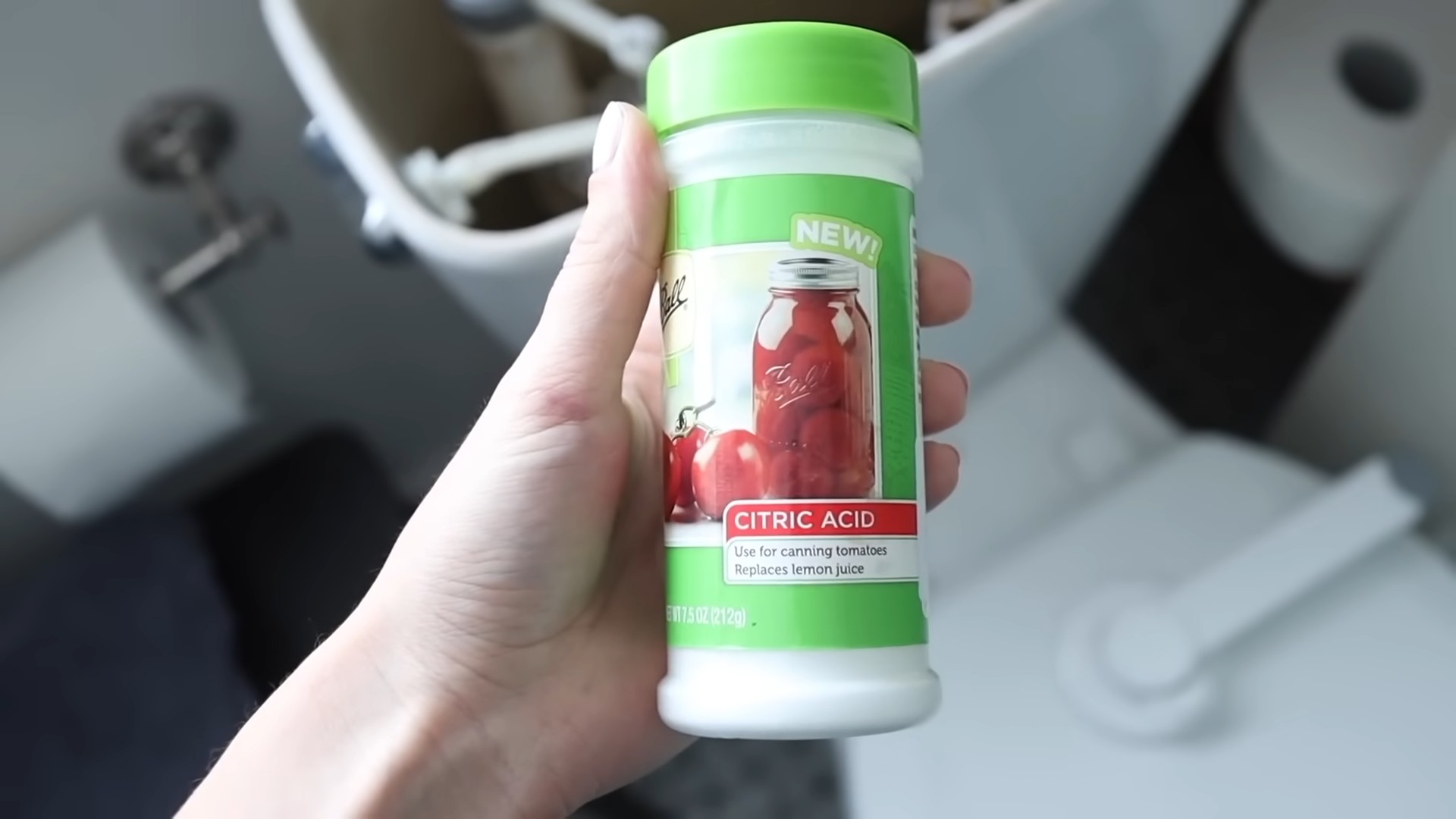
Citric Acid: Your New Best Friend for a Sparkling Home (DIY Cleaning Guide)
Hey there, fellow cleaning enthusiasts! I’m so excited to share my absolute favorite cleaning hack with you: using citric acid! Seriously, this stuff is a game-changer. It’s natural, effective, and way cheaper than most commercial cleaners. Plus, it’s super versatile. I use it for everything from descaling my kettle to brightening my laundry. So, grab your gloves, and let’s get cleaning!
What is Citric Acid and Why Should You Use It?
Citric acid is a weak organic acid found naturally in citrus fruits like lemons and limes. You can buy it in powdered form, usually in the baking aisle or online. It’s a fantastic cleaning agent because:
* It’s a natural descaler: Citric acid dissolves limescale, hard water stains, and mineral deposits like a champ.
* It’s a mild disinfectant: While not as strong as bleach, it helps kill bacteria and germs.
* It’s a deodorizer: It neutralizes odors, leaving a fresh, clean scent.
* It’s biodegradable: It’s environmentally friendly and breaks down easily.
* It’s affordable: A bag of citric acid goes a long way!
Safety First!
Before we dive in, let’s talk safety. While citric acid is relatively safe, it’s still an acid.
* Always wear gloves: It can irritate sensitive skin.
* Avoid contact with eyes: If it gets in your eyes, rinse immediately with plenty of water.
* Don’t mix with bleach: This can create harmful chlorine gas.
* Test on an inconspicuous area first: Especially on delicate surfaces like marble or granite.
Descaling Your Kettle or Coffee Maker
Limescale buildup in your kettle or coffee maker can affect the taste of your drinks and shorten the lifespan of your appliances. Here’s how to descale them with citric acid:
1. Prepare the solution: Mix 1-2 tablespoons of citric acid with water in your kettle or coffee maker. For a kettle, fill it about halfway. For a coffee maker, fill the water reservoir. The amount of citric acid depends on the severity of the limescale. Start with less and add more if needed.
2. Boil or run the solution: For a kettle, boil the solution and let it sit for 30 minutes to an hour. For a coffee maker, run the solution through a brewing cycle.
3. Rinse thoroughly: After soaking, discard the solution and rinse the kettle or coffee maker several times with fresh water until all traces of citric acid are gone. You might need to boil or run a few cycles of fresh water to be sure.
4. Inspect and repeat if necessary: Check for any remaining limescale. If there’s still some buildup, repeat the process.
Cleaning Your Showerhead
A clogged showerhead can reduce water pressure and make your shower less enjoyable. Citric acid can dissolve mineral deposits and restore your showerhead’s flow.
1. Remove the showerhead (if possible): If your showerhead is easily removable, detach it from the shower arm. This will make the cleaning process easier.
2. Prepare the soaking solution: In a container (like a plastic bag or bucket), mix 2-3 tablespoons of citric acid with enough warm water to completely submerge the showerhead.
3. Soak the showerhead: Place the showerhead in the solution and let it soak for at least 30 minutes, or even overnight for heavily clogged showerheads.
4. Scrub away any remaining residue: After soaking, use an old toothbrush or a small brush to scrub away any remaining mineral deposits. Pay attention to the nozzles.
5. Rinse thoroughly: Rinse the showerhead thoroughly with fresh water to remove all traces of citric acid.
6. Reattach the showerhead: If you removed the showerhead, reattach it to the shower arm.
7. Run the water: Turn on the water and let it run for a few minutes to flush out any remaining debris.
Cleaning Bathroom Fixtures (Faucets, Sinks, and Toilets)
Citric acid is excellent for removing hard water stains and soap scum from bathroom fixtures.
1. Prepare the cleaning solution: Mix 1-2 tablespoons of citric acid with a cup of warm water in a spray bottle.
2. Spray the solution: Spray the solution onto the affected areas, such as faucets, sinks, and around the toilet bowl.
3. Let it sit: Allow the solution to sit for 10-15 minutes to dissolve the stains and grime.
4. Scrub and wipe: Use a sponge or cloth to scrub the surfaces. For stubborn stains, you might need to use a slightly abrasive sponge or a scrub brush.
5. Rinse thoroughly: Rinse the surfaces thoroughly with fresh water.
6. Dry with a clean cloth: Dry the fixtures with a clean cloth to prevent water spots.
For toilets: You can pour about 1/4 cup of citric acid directly into the toilet bowl. Let it sit overnight, then scrub with a toilet brush and flush.
Cleaning Your Dishwasher
Over time, dishwashers can accumulate limescale and food debris, which can affect their performance. Citric acid can help keep your dishwasher clean and running efficiently.
1. Empty the dishwasher: Make sure your dishwasher is empty before you start.
2. Add citric acid: Pour about 1/4 cup of citric acid into the detergent dispenser.
3. Run a hot cycle: Run the dishwasher on a hot cycle without any dishes.
4. Repeat if necessary: If your dishwasher is heavily soiled, you might need to repeat the process.
Brightening Laundry
Citric acid can also be used to brighten white clothes and remove stains.
1. Add to the wash: Add 1/4 to 1/2 cup of citric acid to your washing machine along with your regular detergent.
2. Wash as usual: Wash your clothes as usual.
3. For stain removal: For stubborn stains, you can make a paste of citric acid and water and apply it directly to the stain. Let it sit for 30 minutes, then wash as usual.
Important Note: Always test the citric acid solution on an inconspicuous area of the fabric first to ensure it doesn’t cause any discoloration.
Removing Rust Stains
Citric acid is a powerful rust remover.
1. Prepare a paste: Mix citric acid with water to form a paste.
2. Apply to the rust stain: Apply the paste to the rust stain and let it sit for 30 minutes to an hour.
3. Scrub and rinse: Scrub the area with a brush or sponge and rinse thoroughly with water.
4. Repeat if necessary: For stubborn rust stains, you may need to repeat the process.
Cleaning Burnt Pots and Pans
Accidentally burnt your favorite pot? Don’t worry, citric acid can help!
1. Fill the pot with water: Fill the burnt pot or pan with enough water to cover the burnt area.
2. Add citric acid: Add 2-3 tablespoons of citric acid to the water.
3. Boil the solution: Bring the solution to a boil and let it simmer for 15-20 minutes.
4. Let it cool: Let the solution cool down before handling the pot or pan.
5. Scrub and rinse: Use a sponge or scrub brush to scrub away the burnt residue. The burnt food should come off easily. Rinse thoroughly with water.
Cleaning Glassware
Citric acid can remove hard water stains and cloudiness from glassware, leaving them sparkling clean.
1. Prepare a soaking solution: Fill a sink or basin with warm water and add 1-2 tablespoons of citric acid.
2. Soak the glassware: Soak the glassware in the solution for 15-30 minutes.
3. Rinse and dry: Rinse the glassware thoroughly with fresh water and dry with a clean cloth.
Cleaning Your Washing Machine
Just like your dishwasher, your washing machine can also benefit from a citric acid cleaning. This helps remove detergent buildup and mineral deposits.
1. Empty the washing machine: Make sure your washing machine is empty.
2. Add citric acid: Pour about 1/2 cup of citric acid directly into the drum of the washing machine.
3. Run a hot cycle: Run the washing machine on a hot cycle with no clothes.
4. Repeat if necessary: For heavily soiled washing machines, you might need to repeat the process.
Tips and Tricks for Using Citric Acid
* Adjust the concentration: The amount of citric acid
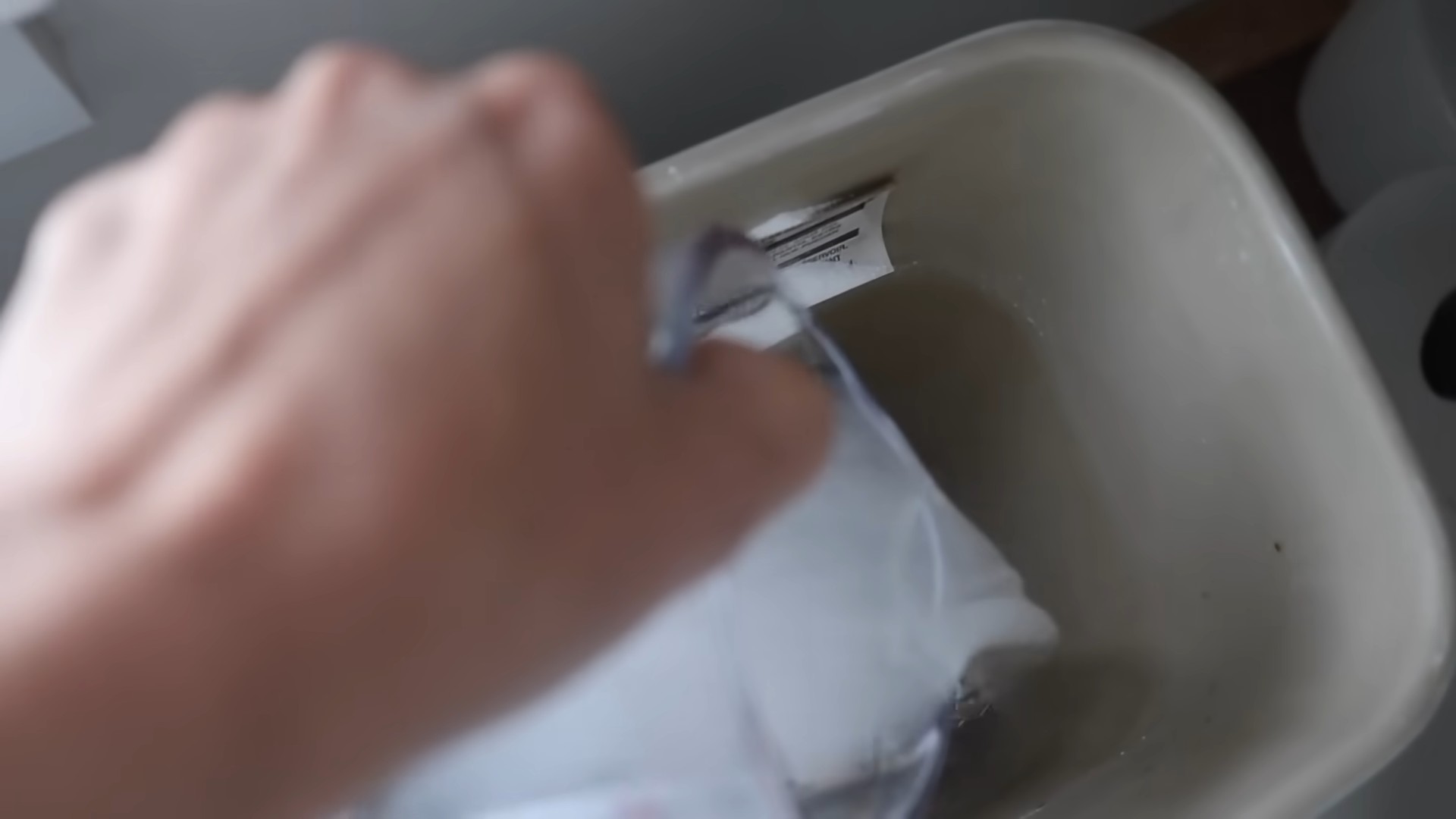
Conclusion
So, there you have it! Ditching harsh chemicals and embracing the power of citric acid for your cleaning needs is not just a trend; it’s a smart, effective, and environmentally conscious choice. We’ve explored a range of applications, from banishing stubborn hard water stains in your bathroom to revitalizing your kitchen appliances and even giving your laundry a boost. The versatility of citric acid is truly remarkable, making it a must-have in any eco-friendly cleaning arsenal.
But why is this DIY trick a must-try? Simply put, it works! Citric acid’s natural acidity effortlessly cuts through grime, mineral deposits, and soap scum, leaving surfaces sparkling clean without the lingering chemical odors or potential health hazards associated with conventional cleaners. It’s also incredibly cost-effective. A single bag of citric acid powder can replace multiple specialized cleaning products, saving you money and reducing clutter under your sink. Furthermore, you’re contributing to a healthier planet by minimizing your reliance on harsh chemicals that can pollute waterways and harm ecosystems.
Looking for variations? Absolutely! For a more potent bathroom cleaner, try combining citric acid with a few drops of your favorite essential oil, such as tea tree or eucalyptus, for added disinfecting and aromatherapy benefits. To tackle tough oven grime, create a paste of citric acid and baking soda, apply it to the affected areas, let it sit overnight, and then scrub away the mess with ease. You can even use citric acid to descale your coffee maker or electric kettle – simply dissolve a tablespoon of citric acid in water, run it through the appliance, and then rinse thoroughly. Experiment with different concentrations and application methods to find what works best for your specific cleaning challenges. Remember to always test a small, inconspicuous area first to ensure compatibility with the surface you’re cleaning.
We’re confident that once you experience the cleaning power of citric acid, you’ll be hooked. It’s a game-changer for anyone seeking a safer, more sustainable, and equally effective alternative to traditional cleaning products. So, ditch the harsh chemicals, embrace the power of nature, and give this DIY citric acid cleaning trick a try.
We’re eager to hear about your experiences! Share your before-and-after photos, your favorite citric acid cleaning recipes, and any tips or tricks you’ve discovered in the comments below. Let’s build a community of eco-conscious cleaners who are passionate about creating a healthier home and a healthier planet, one sparkling surface at a time. Discover the magic of citric acid cleaning and never look back!
Frequently Asked Questions (FAQ)
What exactly is citric acid, and is it safe to use?
Citric acid is a naturally occurring organic acid found in citrus fruits like lemons, limes, and oranges. It’s a weak acid, making it a safe and effective cleaning agent when used properly. It’s biodegradable and non-toxic, making it a much better alternative to harsh chemical cleaners. However, like any cleaning product, it’s essential to handle it with care. Avoid direct contact with eyes and prolonged skin contact. If irritation occurs, rinse thoroughly with water. Keep out of reach of children and pets.
Where can I buy citric acid?
Citric acid is readily available in various forms. You can find it in the baking aisle of most grocery stores, often sold as a food preservative or flavoring agent. It’s also available in larger quantities online from retailers like Amazon or specialty cleaning supply stores. Look for food-grade or cleaning-grade citric acid, depending on your intended use. Both are effective for cleaning, but food-grade citric acid is generally considered purer.
What surfaces can I clean with citric acid?
Citric acid is safe for use on a wide range of surfaces, including stainless steel, porcelain, ceramic tile, glass, plastic, and some fabrics. It’s particularly effective for removing hard water stains, soap scum, rust, and mineral deposits. However, it’s essential to avoid using citric acid on certain surfaces, such as marble, granite, and other natural stones, as it can etch or damage them. Always test a small, inconspicuous area first to ensure compatibility. Also, avoid using it on aluminum, as it can cause discoloration.
How do I make a basic citric acid cleaning solution?
Making a basic citric acid cleaning solution is simple. Dissolve 1-2 tablespoons of citric acid powder in 1 cup of warm water. Stir until the powder is completely dissolved. You can then pour the solution into a spray bottle for easy application. Adjust the concentration depending on the severity of the cleaning task. For tougher stains, you can use a more concentrated solution.
Can I use citric acid to clean my washing machine?
Yes, citric acid is an excellent natural cleaner for washing machines. To clean your washing machine, add about 1/2 cup of citric acid powder directly into the drum. Run a hot water cycle on the longest setting. This will help remove mineral buildup, soap residue, and odors, leaving your washing machine fresh and clean. Repeat this process every few months to maintain optimal performance.
Is citric acid safe for septic systems?
Yes, citric acid is generally considered safe for septic systems. It’s a biodegradable and non-toxic substance that won’t harm the beneficial bacteria in your septic tank. Unlike harsh chemical cleaners, citric acid won’t disrupt the delicate balance of your septic system.
How do I remove rust with citric acid?
Citric acid is a powerful rust remover. To remove rust, create a paste of citric acid and water. Apply the paste to the rusted area and let it sit for several hours or overnight. Then, scrub the area with a brush or sponge and rinse thoroughly with water. For heavily rusted items, you can soak them in a citric acid solution for several hours before scrubbing.
Can I use citric acid to clean my coffee maker or kettle?
Yes, citric acid is a great way to descale your coffee maker or kettle. To descale your coffee maker, dissolve 1 tablespoon of citric acid in water and pour the solution into the water reservoir. Run a brewing cycle without coffee. Then, run two or three cycles with fresh water to rinse thoroughly. For kettles, fill the kettle with water and add 1-2 tablespoons of citric acid. Bring the mixture to a boil and let it sit for 30 minutes. Then, rinse the kettle thoroughly with water.
What are some safety precautions I should take when using citric acid?
While citric acid is generally safe, it’s essential to take some precautions. Avoid direct contact with eyes and prolonged skin contact. If irritation occurs, rinse thoroughly with water. Wear gloves when handling citric acid, especially if you have sensitive skin. Keep citric acid out of reach of children and pets. Store it in a cool, dry place away from direct sunlight. Never mix citric acid with bleach, as this can create harmful fumes. Always test a small, inconspicuous area before cleaning an entire surface.

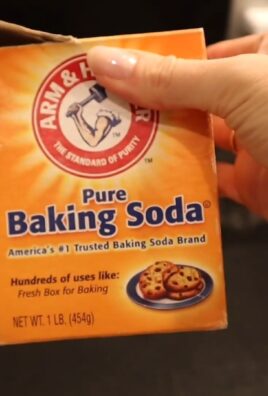
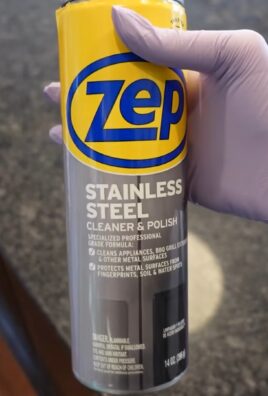
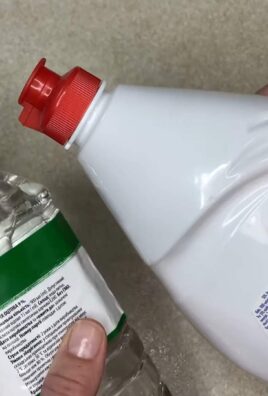
Leave a Comment